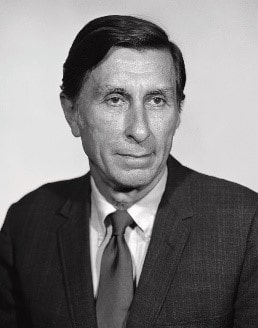What to know
About
- The Charles C. Shepard Science Awards has recognized excellence in science at CDC and Agency for Toxic Substances and Disease Registry (ATSDR) since 1986.
- Learn about the eligibility and nomination processes for the Scientific Publication and the Lifetime Scientific Achievement awards.
- The awards are in honor of Dr. Charles C. Shepard who was an internationally recognized microbiologist and chief of the Leprosy and Rickettsia Branch at the Centers for Disease Control and Prevention (CDC) for more than 30 years.
Background

The purpose of the awards are:
- To recognize excellence in scientific achievement by CDC and ATSDR authors of outstanding scientific papers.
- To honor the memory of Charles C. Shepard whose career was marked by the pursuit of scientific excellence.
Overview
For scientific publications, the award is presented to CDC/ATSDR scientists for the best original research manuscript published in a reputable, peer-reviewed journal. Awards are presented for five scientific publication award categories:
- Assessment
- Prevention and Control
- Laboratory Science
- Data Methods and Study Design
- Health Equity Science
An award is also presented for lifetime scientific achievement. The award recognizes an individual with a body of scientific work contributing to public health.
Nomination
Each year CDC's Office of Science issues a call for Charles C. Shepard Science Award nominations and presents the awards at the agency's annual Shepard Scientific Awards ceremony. Colleagues from across CDC/ATSDR nominate candidates for Charles C. Shepard Science Awards.
Requirements
In each category, an award may be presented for the best paper on original research published in a reputable, peer reviewed journal by a CDC/ATSDR scientist during the previous calendar year.
Only publications with a CDC/ATSDR staff member as first author or senior author, under the primary supervision of CDC/ATSDR staff when the work was performed, are eligible.
To be considered the senior author, the author must have played a major role in the design and concept of the study or had major scientific oversight of the study. If the first author is not a CDC/ATSDR author, the CDC/ATSDR Center, Institute, Office (CIO) must designate the CDC/ATSDR senior author as the eligibility source and the justification for that designation.
Purpose: Assessment publications characterize health, disease, conditions, or behaviors, and their determinants in communities or populations.
Purpose: Publications in this category report on a new or refined non-laboratory method and/or a new, innovative, or otherwise exceptional study design that addresses one or more public health challenges. In other words, this award recognizes the development and demonstration of an outstanding or exceptional approach to solving a public health problem.
Purpose: Publications in this category contribute to health equity science by deepening the understanding of health disparities and social determinants of health or expanding an evidence-base for identifying effective, new, or emerging interventions to reduce disparities and achieve health equity.
Purpose: Laboratory science papers describe the development and/or use of laboratory methods to solve problems of public health importance.
Purpose: Publications in this category address the prevention and/or control of one or more diseases, conditions, or other challenges to public health or the prevention and/or control of risk factors for these diseases, conditions, or challenges.
Lifetime Scientific Achievement
This award recognizes an individual for a lifetime of scientific work contributing to public health. Examples include careers of scientific research and careers of scientific research followed by administration/management. As such, expectations for this award include:
- Over the years, awardees will represent different scientific disciplines.
- In some years, CDC/ATSDR may not present a Lifetime Scientific Achievement award.
- The nominee must be a senior scientist respected by peers within and outside of CDC/ATSDR.
- The majority of the nominee's work must have occurred at CDC/ATSDR and been published with a CDC/ATSDR affiliation.
- The nominee must be an individual living at the time of the nomination.
- One nomination per CDC/ATSDR Center, Institute, or Office (CIO).
- The nomination must name the nominated individual and describe their career or body of work and its importance for which the nomination is being made.
- The nomination must address each of the Selection Criteria on the Charles C. Shepard Science Award for Lifetime Scientific Achievement nomination form.
- The entire narrative, addressing all selection criteria, must not exceed five pages.
- If more than five pages are submitted, only the first five pages will be provided to the Shepard Award Full Committee for review and consideration.
- The entire narrative, addressing all selection criteria, must not exceed five pages.
- A curriculum vitae (CV) is required to support the nomination.
Review criteria
All nominations are reviewed by a committee which includes 17 reviewing members, 2 co-chairpersons, and an executive secretary.
Scientific Publication Categories
Publications within the Scientific Publication Categories are evaluated based on:
- Scientific merit including aspects such as originality, difficulty, efficiency, methods, and clarity.
- Impact on public health including importance and significance.
Lifetime Scientific Achievement
Nominees for Lifetime Scientific Achievement are evaluated in terms of:
- The body of their work.
- The scientific merit of the work.
- The impact of the work on public health.
- The work's contribution to the mission of CDC/ATSDR.
Nominees are also evaluated based on the recognition of their work by scientific peers and on leadership both with their peers and within the scientific discipline or field of research.
